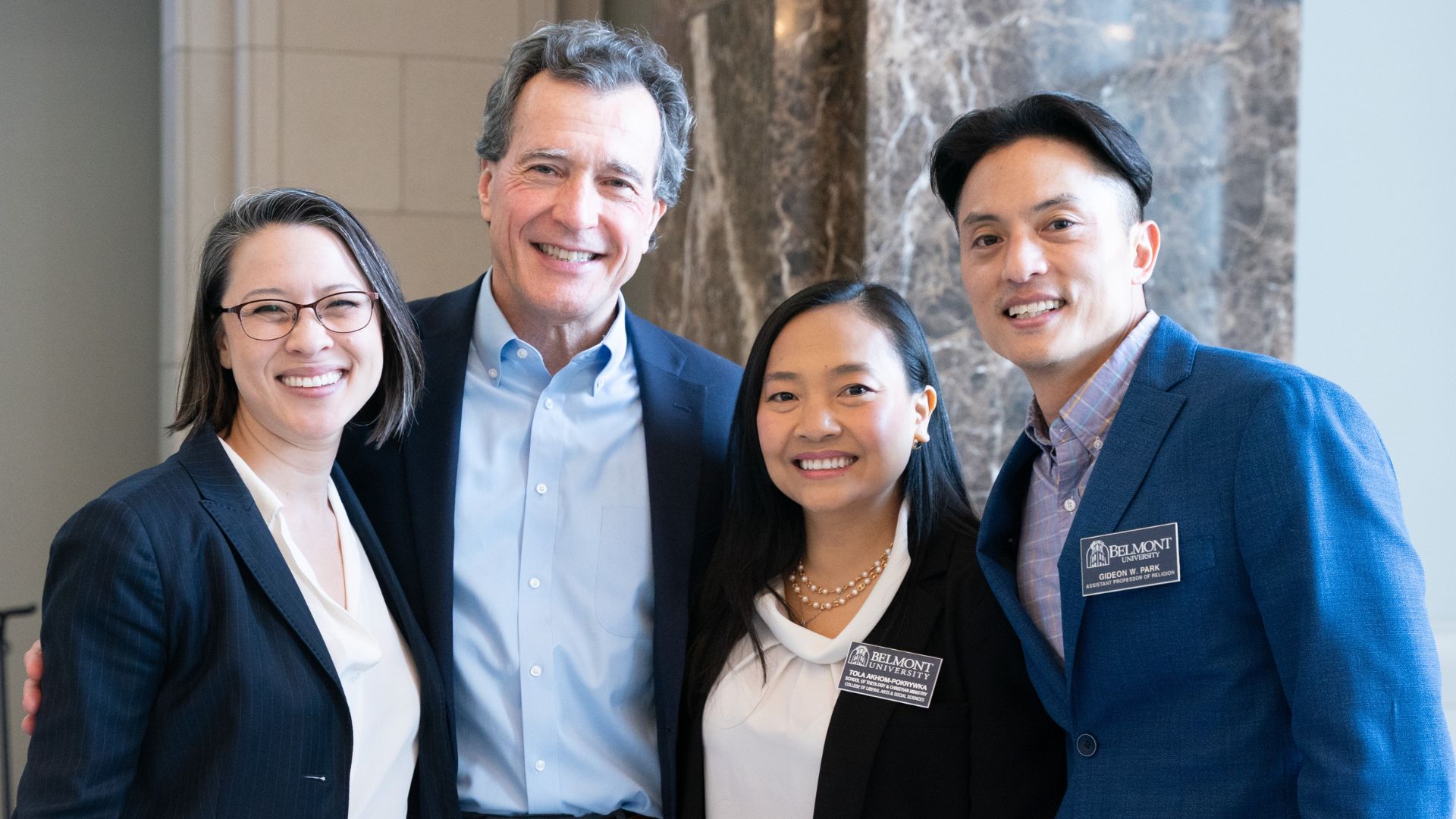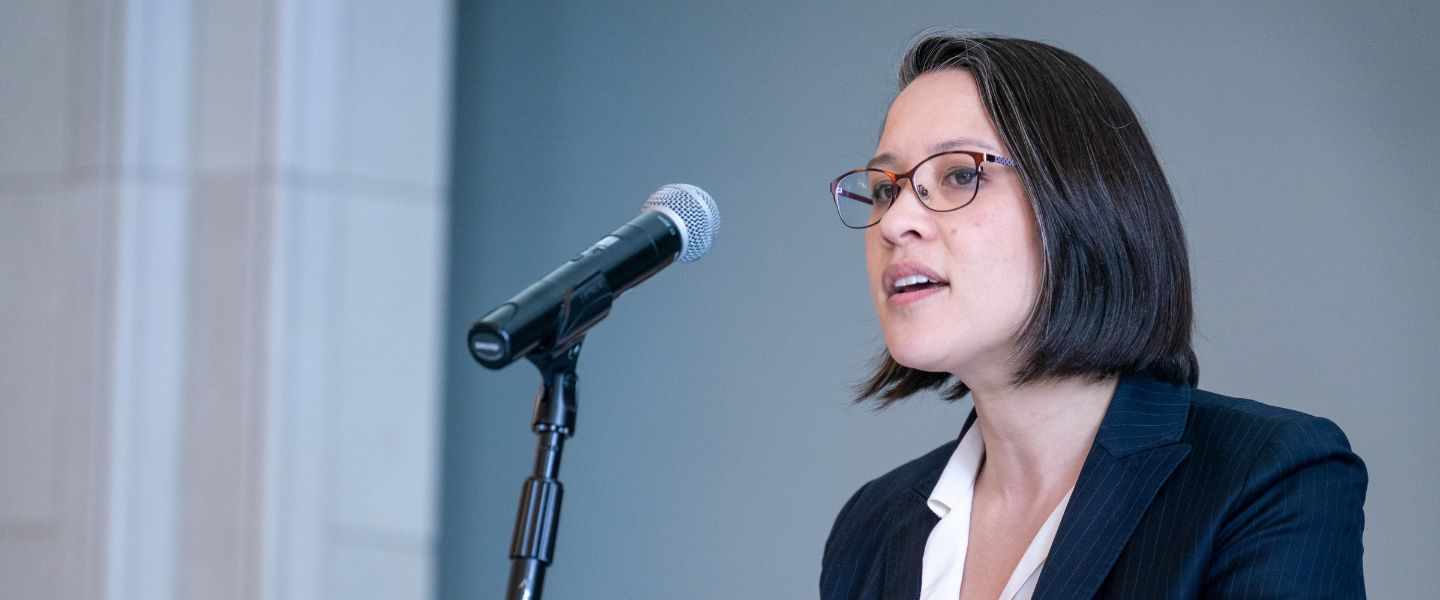While much of the country observes Asian American and Pacific Islander (AAPI) Heritage Month in May, Belmont elects to celebrate in April before students depart campus for the summer. To kick off the month, Dr. Jessica Wai-Fong Wong traveled to the Gabhart Chapel from Azusa Pacific University to deliver a message regarding how Christians should respond to racial injustice.
Dr. Wong is an associate professor of systemic theology at Azusa Pacific with a focus on political and liberation theology. Frequently addressing race, gender, society and visual theory, Dr. Wong is an ordained ruling elder in the Presbyterian Church and holds degrees in Christian theology and ethics from Duke University and Duke Divinity School.
“If we’re honest about it, the work of racial injustice is often an exhausting undertaking and caring about this issue is tiring,” said Dr. Wong. “I think one reason why burnout is so common among those who pursue social justice is because someone who cares about social justice must constantly think about death.”
In her message, Dr. Wong used death as a framework to explain racial injustice and resurrection as a metaphor for change and bringing about new life in the form of inspiration.
There are two types of death in this context according to Dr. Wong — physical death and social death. Physical death includes racially motivated hate crimes, lynchings and killings. Social death occurs when certain groups are ostracized from the rest of the public, forming a disconnection that we so often associated with death in general.
Because we see so much more death than we do resurrection, she says, it can be incredibly difficult to hold out hope. However, when we look at what resurrection means on this side of life, we see it everywhere. We see how change can be enacted after witnessing social injustice and how the bodies of those that have been killed hold a new meaning, demanding reform. Further, we see that the resurrection that Paul talks about in I Corinthians 13, a resurrection in the form of sweeping transformation rooted in love, is still alive and well today.
“It is not our job to make resurrection happen,” she continued. “To try to force change is discouraging, especially the work of racial justice since it’s such a deep-seated systemic problem. It’s too big for us to change. But maybe that’s the point."
God is the one who resurrects, our job is merely to plant the seeds of change and witness to the new life emerging all around us.
Despite how impossible and hopeless it may feel at times, steadfastness and faith are how we must respond when met with success or struggle, according to Dr. Wong.
“To the people of justice, the people of mercy, the people of humility, live in ways that reflect His love,” she concluded. “Do not grow weary in the face of death that you will encounter along the way because you will experience that resurrection. When you do the work of God, you will encounter death. Jesus never promised us the path would be easy, but continue to hope in the resurrection that is coming.”
Other AAPI Events Include:
Invisible No More: The Importance of AANHPI Voices in Music, Education, and Society — Monday, April 8 at 10 a.m.
What Does Korean American Jazz Sound Like?: Sounds, Styles, and Identity Synthesis From Nomad — Monday, April 8 at 6 p.m.
Sakura at Belmont — Tuesday, April 9 at 6:30 p.m.
Boba Milk Tea with Rev. Chan — Monday, April 15 at 10 a.m.


